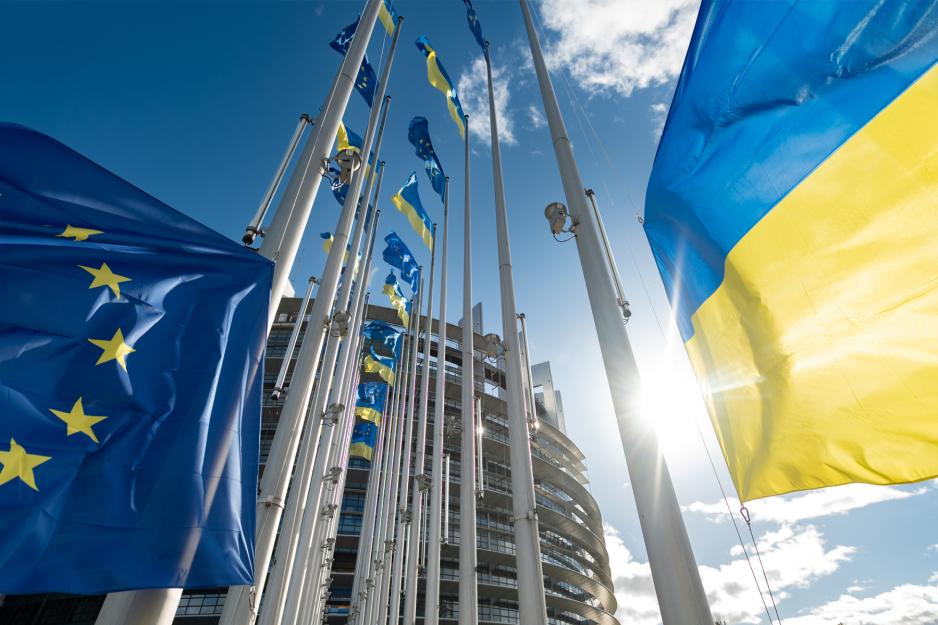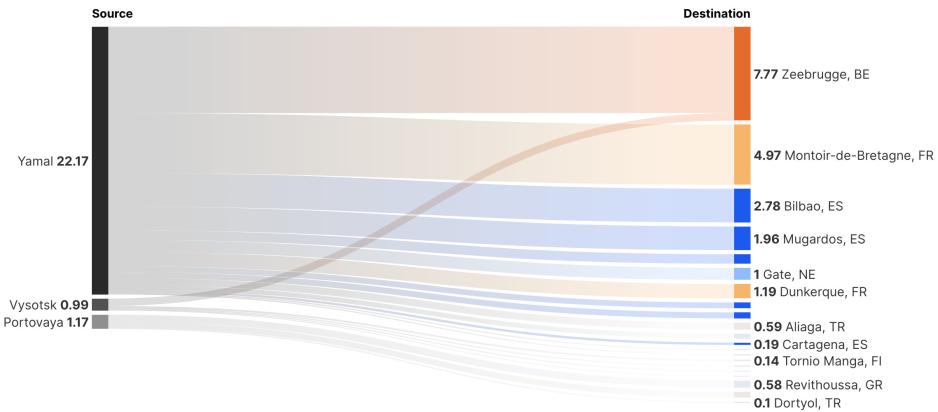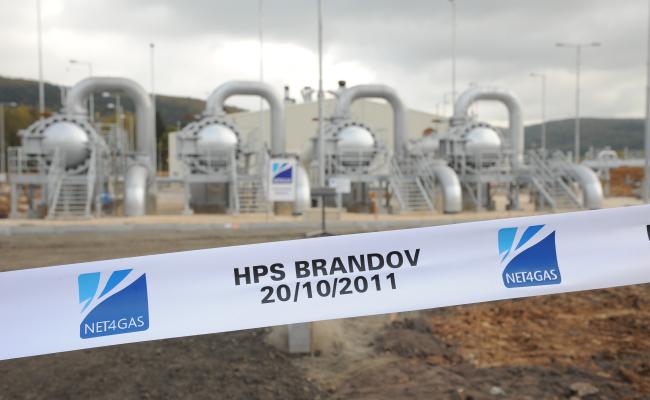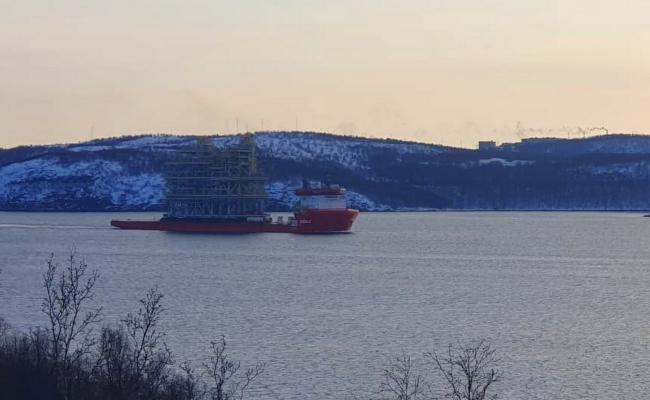EU Countries Divided on How to Phase out Russian Arctic LNG

EU and Ukraine flags in Brussels 2024. (Source: Courtesy of and © European Union, 2024 - EP)
A month before the EU Parliament is expected to vote on a directive to give states a tool to block the flow of Russian liquefied gas, some member states are voicing concern that the proposed measures are insufficient to undo long-term contracts. Without a unified approach the flow of Russian LNG could simply be diverted to neighboring countries, Spanish officials warn.
Discussions are continuing in Brussels and across EU member states on the tools needed to phase out Russian liquefied natural gas (LNG).
Following a meeting of the Energy Council on Monday, Commissioner for Energy Kadri Simson confirmed that an EU-wide measure first discussed in December 2023 will be coming up for a vote in front of the bloc’s parliament in April.
“The Gas Package, which we agreed last year, gives each Member States the option to limit or stop access of Russian and Belarus gas to their gas systems, under certain conditions. The plenary vote of the European Parliament is now planned for April,” she said.
In theory the legislative package will give each member state the option to ban the import of Russian LNG, without the need for direct sanctions.
The exact mechanism, however, remains unclear and officials from both Belgium and Spain warn that stricter directives will be needed to address the flow of LNG from Russia into their countries.
Belgium and Spain, together with France, have emerged as the top three importers of LNG from Novatek’s Yamal LNG facility buying around 80 percent of the plant’s production.

Russian liquefied natural gas flows to Europe by terminal, 2023 in Billion cubic meters. (Source: Kpler, IEEFA)
Especially, Spain’s imports have doubled between 2022 and 2023 despite officials urging industry to phase out existing contracts and not expand deliveries further. Russian LNG now accounts for 20 percent of Spain’s gas supplies.
Unified approach needed
“We have to ensure the response is effective,” explained Spain’s energy minister Teresa Riberas on Monday, expressing concern that individual actions by member states will simply lead to a redirection of Russian LNG to neighboring countries.
Once LNG enters the interconnected European gas network it becomes nearly impossible to trace. As a result Russian products can indirectly reach countries which don’t actively receive gas from the country.
Just last week a new study indicated that Germany continues to import Russian gas through LNG deliveries arriving in Belgium and the Netherlands.
Calling for a coordinated approach Riberas said: “Please let’s try and coordinate how we react on this, both on the spot market and existing contracts.”
“We need to count on a general approach coming from the European Union, and we will be insisting on that,” she concluded. A document introduced by Lithuania last week calls for EU-wide legislation that would formally give member states the power to draft measures on a national level.
We are confronted with specific contracts that were signed before the war
Need for legal tools
Government officials in both Spain and Belgium have said they are unsure how to deal with long-term off-take agreements and that they require additional guidance from Brussels.
Belgium’s case is further complicated as its port Zeebrugge serves as a major re-export hub for Russian gas. Provider Fluxys operates under a 20 year contract with Novatek for the transshipment of up to 8m tons of LNG annually.
“We are indeed also in Belgium confronted with specific contracts that were signed well before the war and it is now still an open issue how to address this,” said the country’s energy minister Tinne Van der Straeten last month. “It is not entirely clear if we can work with [what’s proposed by the EU].”
Several EU member states, including Austria, Hungary, and Slovakia, continue to rely on Russian pipeline imports for up to half of their gas needs. It is unclear if these countries would support broader measures to ban or phase out Russian LNG across the entire EU.
The EU’s stated goal is to import less Russian gas in 2024. “We must end this year with even less Russian gas in our system than the year before,” said Simson in Brussels.
However, for the first two months of the year the flow of Russian LNG continued unabated. In contrast to previous winters, which saw limited number of deliveries from Yamal to Asia, Novatek has so far exclusively shipped its product to European LNG terminals this winter.



